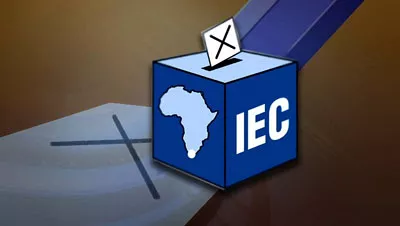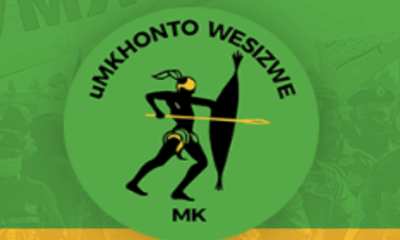News
IEC Confirms Readiness for 2026 Elections as E-Voting Plan Put on Hold

South Africa’s Electoral Body Prepares for a November Poll
South Africa’s next general elections are inching closer, and the Independent Electoral Commission (IEC) says it’s ready to deliver whenever the call is made.
During a recent media briefing, Deputy Chief Electoral Officer Masego Sheburi confirmed that the IEC is fully prepared to administer an election on the first Wednesday of November 2026, should that date be selected by Cooperative Governance and Traditional Affairs Minister Velenkosi Hlabisa.
The final date for the country’s next elections has not yet been set, but the likely window stretches between 2 November 2026 and 31 January 2027.
Sheburi explained that while the Commission doesn’t decide the election date, it must remain ready from the first possible day that voting could legally take place. “If we do not stand ready on that day, we are taking away the Minister’s decision-making,” he said.
The IEC’s internal planning has considered multiple scenarios, weighing in everything from matric and university exam schedules to weather patterns across provinces, all key factors that affect turnout and logistics.
Why November Is on the Table
November has long been considered a practical month for national elections in South Africa. It falls after matric finals in most provinces and before the busy festive period, when many voters travel or head home for the holidays.
Sheburi noted that while the first Wednesday of November remains the most likely option, “a number of Wednesdays” within that window period are still under review. Each potential date, he said, has its own advantages and drawbacks.
If the Minister opts for a later date, in late November, December, or even January, the IEC will adjust accordingly. The message is clear: whatever day the Cabinet settles on, the Commission will be ready.
Voter Registration: Gains and Gaps
Outside of an election year, South Africa’s voter roll tends to shrink. According to Sheburi, the IEC currently records an average net loss of about 31,000 voters per month, mainly due to deaths and migration.
Despite that, registration drives earlier in 2025 have been more successful than expected. A recent campaign brought in over 305,000 new registrations, largely thanks to targeted efforts at TVET colleges, universities, and high schools.
The IEC plans to repeat these drives in February 2026 and again during April’s Democracy Month, focusing on younger voters who will be eligible to cast their first ballot next year.
E-Voting Off the Table, For Now
While the idea of electronic voting has been discussed for years, the IEC has now confirmed that e-voting will not be used in the 2026 General Elections.
Over 200 public submissions were received during consultations held across all nine provinces, and the overwhelming message was caution. South Africans want any move toward digital voting to be slow, deliberate, and backed by strong legal safeguards.
Most respondents supported a hybrid approach, combining traditional paper ballots with limited technological enhancements while ensuring accessibility for rural and disabled voters.
Sheburi said the IEC would now refine its draft e-voting policy, taking the public’s input into account before submitting the revised version to Parliament.
Democracy in Motion
South Africa’s democracy has faced growing pressure to modernise, especially with debates around technology, transparency, and youth participation. Yet, the IEC’s decision to hold off on e-voting reflects a careful balancing act: innovation versus inclusion.
For now, the next national election will stick to what South Africans know best: the paper ballot. But the groundwork being laid today could open the door to gradual digital transformation in the years that follow.
One thing is certain: come November 2026, the IEC intends to prove that preparation, not technology, remains the foundation of a fair and credible election.
Also read: Tshwane Approves Land Transfer for New Olievenhoutbosch Police Station
Follow Joburg ETC on Facebook, Twitter, TikT
For more News in Johannesburg, visit joburgetc.com
Source: IOL
Featured Image: Kouga Municipality



























